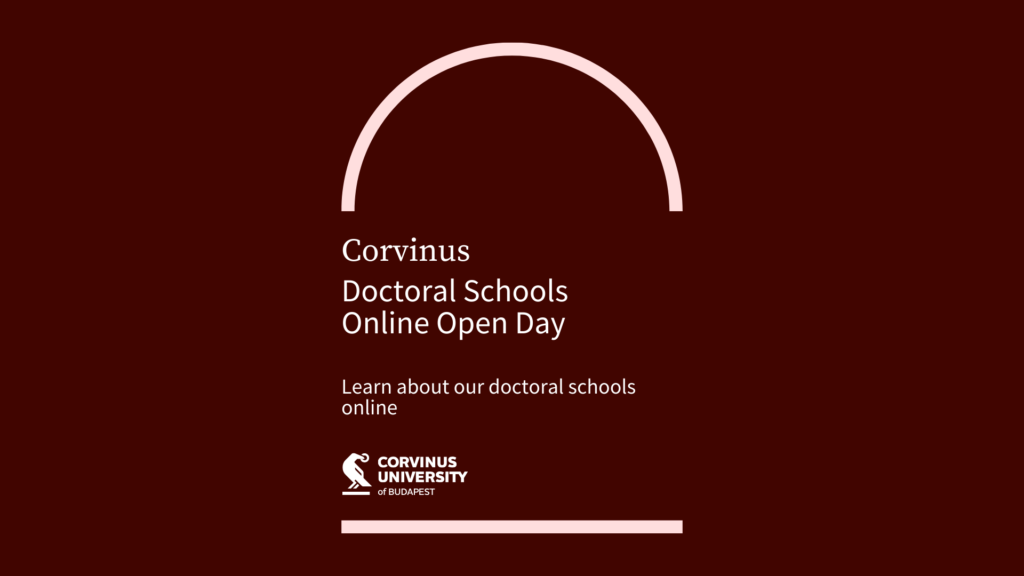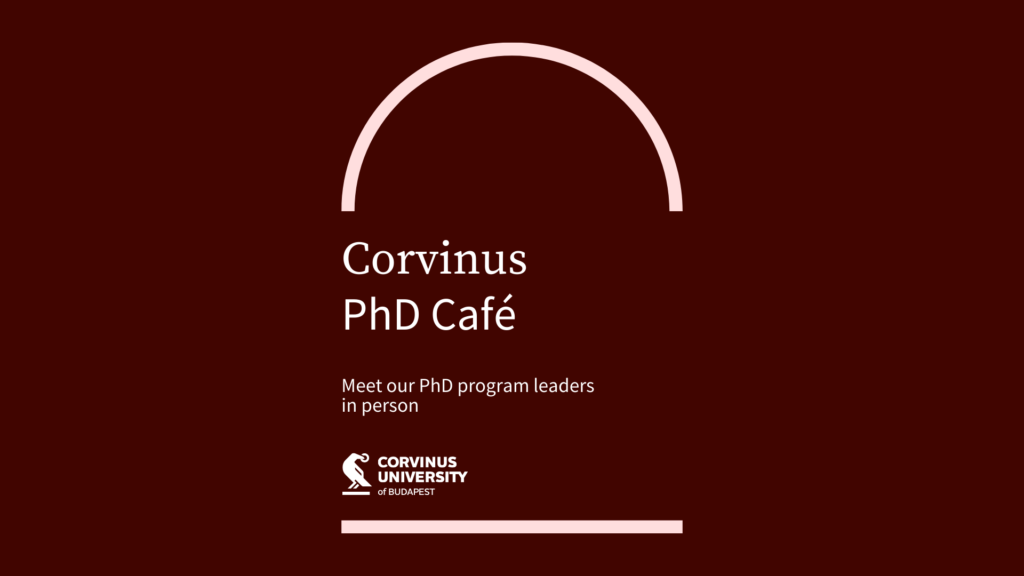
Corvinus Doctoral School’s Online Open Day 2025
Are you interested in a PhD? Do you have questions about admissions? Join our Online Open Day, where the heads of our doctoral schools will share their insights and we will answer your questions!
The program has been running since September 2017, and is open to students conducting research primarily in the fields of economic geography, geopolitics, development policy, urban studies, environmental economics and environmental policy. As a geopolitical program of this kind, we are unique in the country. Despite the short past, nearly 40 students have been enrolled in the program as of September 2020. The quality of education is raised partly by the courses and lectures of renowned colleagues in our field, and partly by renowned foreign guest researchers and lecturers. Along with many others, we had e.g. George Friedman, László Borhi, John Morelli and Deirdre Pfeiffer as visiting professors.
From the beginning, foreign students have also been admitted to the program, from various countries such as China, Myanmar, Turkey, Iran, Kazakhstan, Kyrgyzstan, Azerbaijan and Bosnia and Herzegovina.

Director of Doctoral Program

Head of Doctoral School

Are you interested in a PhD? Do you have questions about admissions? Join our Online Open Day, where the heads of our doctoral schools will share their insights and we will answer your questions!

Subscribe to our newsletter to automatically receive the latest information on further education and admissions!
Questions about the admission procedure are welcome at the e-mail address phd.office@uni-corvinus.hu.
The research opportunities of the doctoral program cover a broad area, in line with the diverse profile of the Department of Geography, Geoeconomy and Sustainable Development, which are as follows:
• economic geography,
• geopolitics,
• development policy,
• urban planning,
• environmental economics,
• environmental policy,
• green finances,
• the relationship between sustainability and any of the above topics.
Due to its international nature, the Program is open to applicants to examine issues arising at global, regional and other levels, in a geographical sense as well. We place special emphasis on issues affecting the Carpathian Basin.
Documents to be submitted:
• Research proposal (max. 8000 characters without literature, which should not exceed 10 items), including the research question, methodology, knowledge about the state of art and the relevance of the research, and its consistence with the research foci of the Doctoral School of International Relations and Political Science.
• Curriculum vitae, including previous research, awards, publications (if any), the title of the Master’s thesis, language proficiency. Applicants should write a paragraph about their motivation.
On the basis of the submitted documents the Doctoral School makes a preselection decision. Applicants invited for an oral interview should be avalaible via Teams or Skype. Questions will be asked concerning the details of the research plan, motivations, previous research experiences. The date of the interview is to be fixed later.
The final decision is made by the University Doctoral Council at the end of May.
Subscribe to our newsletter to automatically receive the latest information on further education and admissions!
Questions about the admission procedure are welcome at the e-mail address phd.office@uni-corvinus.hu.
E-mail: nkpdi-phd@uni-corvinus.hu
Please make an appointment by email before a personal consultation!

Director of Doctoral Program

Doctoral and Habilitation Procedures Expert

Head of Doctoral School

Doctoral Study and Administration Expert